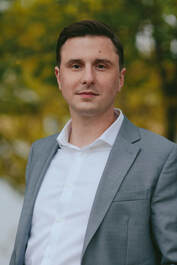
Dr. Sean Harrell
My approach to helping begins with the understanding that in order for therapy to be effective, it must take place within a safe, confidential, and non-judgmental therapy relationship, a relationship that is built with the sole purpose of understanding and helping you. With that said, I do not believe there is ever a "one size fits all" approach to helping people. I tailor each therapy to the particular person I am working with, working not simply on your diagnosis or disorder (for a diagnosis actually tells us quite little about what needs to happen for you to feel better), but on how those things fit within the broader story of your life--your history, relationships, needs, personality and difficulties. I integrate elements of a number of helpful therapy frameworks, depending on the needs of each person, but am especially trained in providing psychodynamic/psychoanalytic psychotherapy, an approach to therapy that is helpful in treating a wide range of problems.
I specialize in helping adolescents and adults who are suffering from depression, anxiety, the effects of trauma, difficulties adjusting, religious/spiritual concerns, or long-standing and repetitive problems such as thought disorders or personality disorders.
I earned my Doctorate in Clinical Psychology at Wheaton College, and completed an APA-Accredited internship at Cornerstone Behavioral Health in Evanston, Wyoming, where I provided outpatient psychotherapy, intensive group therapy, substance abuse treatment, and inpatient therapy with people experiencing severe and persistent mental health problems. In addition to my doctoral training, I received further specialized training as a fellow at the Chicago Center for Psychoanalysis.
While earning my Doctorate of Clinical Psychology (PsyD), I chose to also earn a Masters of Theology from Wheaton College. Although existential concerns, or issues related to faith or spirituality, may not be part of why many people seek my help, I am open and capable of engaging with those concerns if they are part of your life.
I am a member of the Michigan Psychological Association, American Psychological Association, Division 39 (Division of Psychoanalysis) and the Society for the Exploration of Psychoanalytic Therapies and Theology.
My approach to helping begins with the understanding that in order for therapy to be effective, it must take place within a safe, confidential, and non-judgmental therapy relationship, a relationship that is built with the sole purpose of understanding and helping you. With that said, I do not believe there is ever a "one size fits all" approach to helping people. I tailor each therapy to the particular person I am working with, working not simply on your diagnosis or disorder (for a diagnosis actually tells us quite little about what needs to happen for you to feel better), but on how those things fit within the broader story of your life--your history, relationships, needs, personality and difficulties. I integrate elements of a number of helpful therapy frameworks, depending on the needs of each person, but am especially trained in providing psychodynamic/psychoanalytic psychotherapy, an approach to therapy that is helpful in treating a wide range of problems.
I specialize in helping adolescents and adults who are suffering from depression, anxiety, the effects of trauma, difficulties adjusting, religious/spiritual concerns, or long-standing and repetitive problems such as thought disorders or personality disorders.
I earned my Doctorate in Clinical Psychology at Wheaton College, and completed an APA-Accredited internship at Cornerstone Behavioral Health in Evanston, Wyoming, where I provided outpatient psychotherapy, intensive group therapy, substance abuse treatment, and inpatient therapy with people experiencing severe and persistent mental health problems. In addition to my doctoral training, I received further specialized training as a fellow at the Chicago Center for Psychoanalysis.
While earning my Doctorate of Clinical Psychology (PsyD), I chose to also earn a Masters of Theology from Wheaton College. Although existential concerns, or issues related to faith or spirituality, may not be part of why many people seek my help, I am open and capable of engaging with those concerns if they are part of your life.
I am a member of the Michigan Psychological Association, American Psychological Association, Division 39 (Division of Psychoanalysis) and the Society for the Exploration of Psychoanalytic Therapies and Theology.
